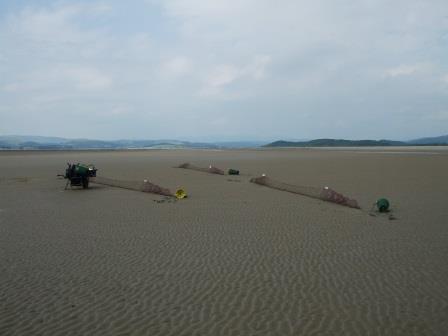Scaling coastal biodiversity and ecosystem services in intertidal food webs.
During my PhD I will be aiming to understand and quantify the feeding interactions among invertebrates and fish in intertidal environments to produce food webs. I am trying to understand changes in food web structure, relating to spatial (different locations) and temporal scale (different times a year).
To achieve this, I will set up a database containing the feeding relationships of invertebrates such as crab and fish species using stomach content analysis and the available literature. To date, I have collected samples in Morecambe Bay and the Essex during both the winter and summer campaigns. I am hoping to use stable isotope analysis to understand diet over a longer time period.
This project will enhance understanding in food web patterns on different scales and relate these to the ecosystem service flows documented in the CBESS project.

Why is this work important?
Society impacts the natural environment more and more. In particular coastal areas such as Essex or the salt marshes in Morecambe may give way for agriculture, housing and farming. Climate change will put additional pressures on these ecosystems in the future. Only if we understand how these communities function – that is how food webs function and change throughout the year for example, we can understand how human impacts may modify them. If we understand the functioning of ecosystems we can predict how these will change in the future and hopefully find management approaches that will protect them from disintegrating.
